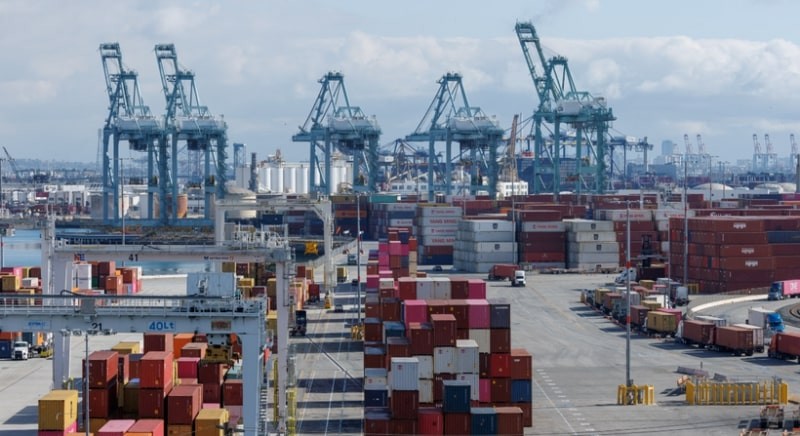Celebrations, tears as Saudi Arabia overturns ban on women driving
Saudi women celebrated taking the wheel for the first time in decades on Sunday (June 24th) as the kingdom overturned the world's only ban on female motorists, a historic reform expected to usher in a new era of social mobility.
 |
A woman drives to work for the first time in Riyadh, Saudi Arabia, on June 24th, 2018. (Photo: AP/Nariman El-Mofty)
The much-trumpeted move is part of Crown Prince Mohammed bin Salman's plan to modernise the conservative petrostate.
Women in Riyadh and other cities began zipping around streets bathed in amber light soon after the ban was lifted at midnight, with some blasting music from behind the wheel.
"I feel free like a bird," said talk show host and writer Samar Almogren as she cruised across the capital.
Television presenter Sabika al-Dosari called it "a historic moment for every Saudi woman" before driving a sedan across the border to the kingdom of Bahrain.
The lifting of the ban, long a glaring symbol of repression, is expected to be transformative for many women, freeing them from dependence on private chauffeurs or male relatives.
"This is a great achievement," billionaire Saudi Prince Al-Waleed bin Talal said as his daughter Reem drove a family SUV, with his granddaughters applauding from the back seat.
"Now women have their freedom," he added in a video posted on Twitter.
Euphoria mixed with disbelief as women posted online videos of driving themselves to work, their children to school and their friends for ice cream, all mundane experiences elsewhere in the world but a dazzling novelty in the desert kingdom.
"The jubilance, confidence and pride expressed by Saudi women driving for the first time in their country, without fear of arrest, brought tears to my eyes," tweeted activist Hala al-Dosari, while lauding the jailed campaigners.
"I'm happy and relieved that ... girls in Saudi will live a bit freer than their mothers."
But many women are keeping away, testing reactions in a society torn between tradition and social change - and bracing for a possible backlash from hardliners who have long preached that allowing female motorists would promote promiscuity and sin.
'BE GENTLE TO WOMEN'
Authorities appeared to project that the reform had religious sanction, with the kingdom's top clerical council on Sunday reiterating that the lifting of the ban was in line with Islamic values.
The reform was catalysed in large measure by what experts characterise as economic pain in the kingdom owing to a protracted oil slump.
It is expected to boost women's employment and, according to a Bloomberg estimate, add USD 90 billion to economic output by 2030.
For now, the women taking to the roads appear mainly to be those who have swapped foreign licences for Saudi ones after undergoing a practical test.
Some 120,000 women have applied for licences, an interior ministry spokesman said, declining to specify how many had been issued.
Some three million women could receive licences and actively begin driving by 2020, according to consultancy firm PricewaterhouseCoopers.
A handful of female driving schools have cropped up in several cities, training women to drive cars as well as Harley-Davidson motorbikes - scenes unimaginable even a year ago.
But many women fear they are still vulnerable to sexist attitudes in a nation where male "guardians" - their fathers, husbands or other relatives - can exercise arbitrary authority to make decisions on their behalf.
The government has preemptively addressed concerns of abuse by outlawing sexual harassment, and authorities have sternly warned against stalking women drivers.
"To all men I say, be gentle towards women" drivers, popular Saudi singer Mohammed Abdu said in an online video.
Prince Mohammed, appointed heir to the most powerful throne in the Middle East a year ago, has also lifted a ban on cinemas and mixed-gender concerts, following his public vow to return the austere kingdom to moderate Islam./.
VNF/AFP
Recommended
 World
World
India sending Holy Relics of Lord Buddha to Vietnam a special gesture, has generated tremendous spiritual faith: Kiren Rijiju
 World
World
Why the India-US Sonobuoy Co-Production Agreement Matters
 World
World
Vietnam’s 50-year Reunification Celebration Garners Argentine Press’s Attention
 World
World
"Will continue offering our full support to Indian govt": US FBI Director after Pahalgam attack
 World
World
"Great Leader": JD Vance Lauds PM Modi During His India Visit
 World
World
Trump’s Tariff Pause: A Strategic Move from “The Art of the Deal”?
 World
World
"Indian Navy's participation in AIKEYME exercise matter of great happiness": Admiral Dinesh Kumar Tripathi
 World
World
